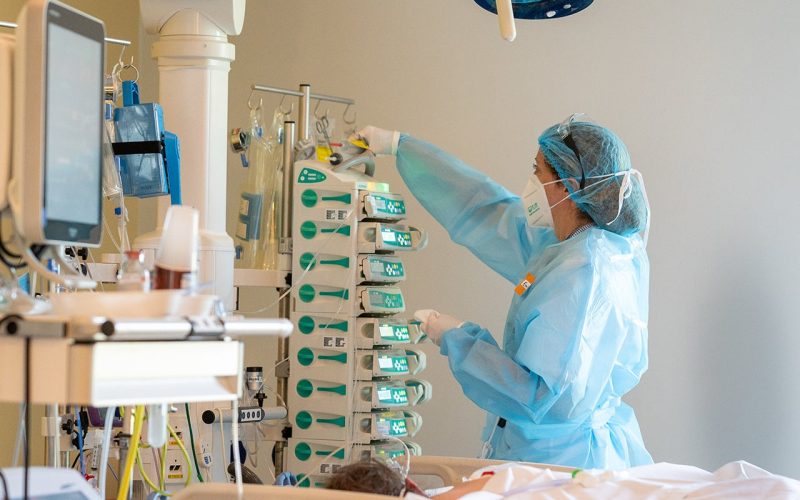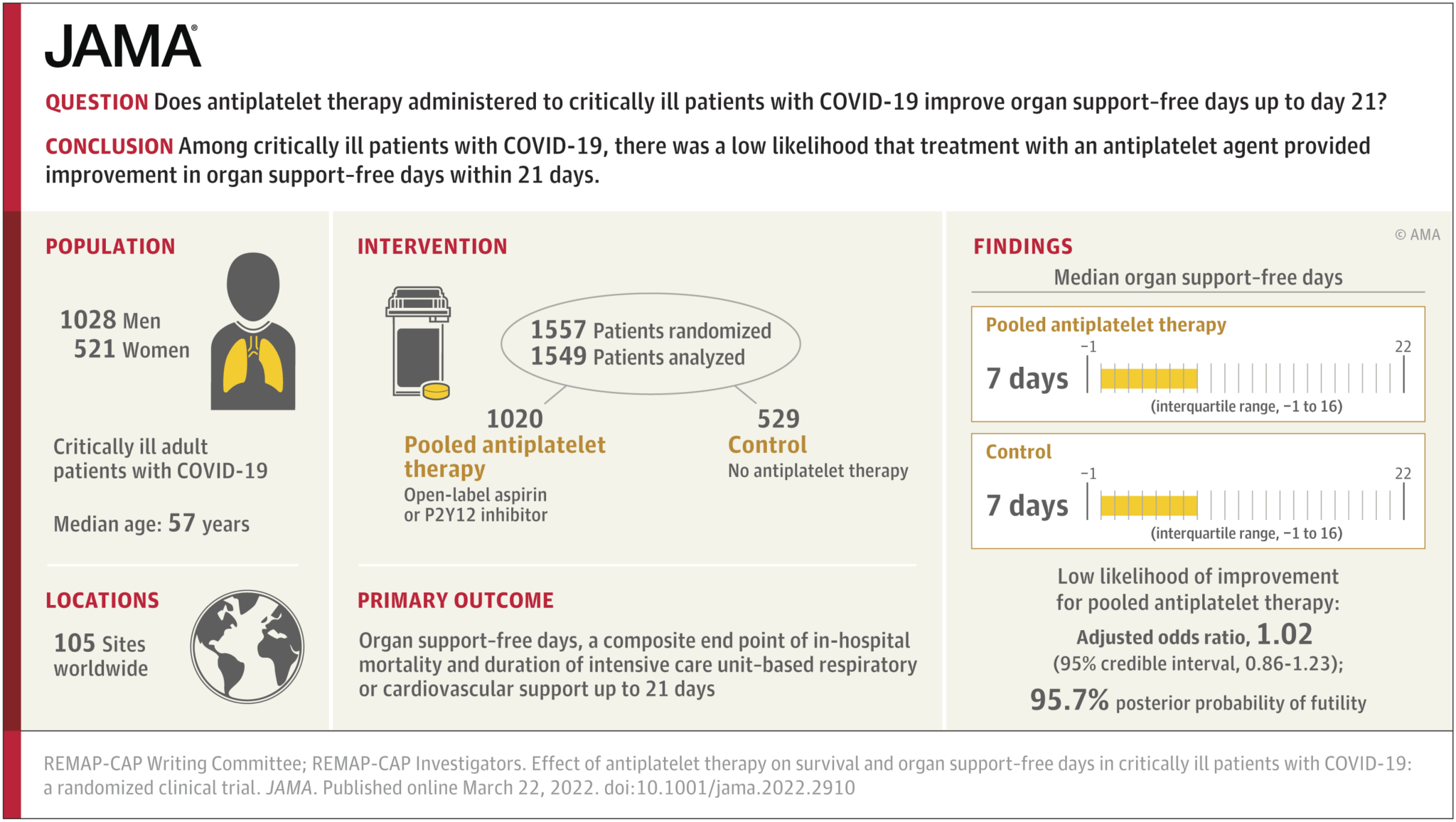Antiplatelet drugs such as aspirin have little effect on the need for life support in COVID-19, but they may improve survival in the following months according to the latest results from the international REMAP-CAP study.
People who become seriously ill with COVID-19 are at risk of developing blood clots that can block their blood vessels and lead to potentially fatal organ damage. Researchers want to know if this process could be prevented by treating patients with blood-thinning antiplatelet drugs. The REMAP-CAP adaptive clinical trial involved 1,557 patients critically ill with COVID-19 in 105 hospitals in Canada, France, Germany, India, Italy, Nepal, Netherlands and the UK during 2020 and 2021. Some were given aspirin, some were given another type of antiplatelet drug called clopidogrel and some were not given any antiplatelet drug.
The main focus of the study was to see how these drugs affected the length of time that patients needed organ support, such as breathing support, in the intensive care unit. Researchers found that these short-term outcomes were similar whether the patient was treated with an antiplatelet drug or not. The investigators continued to follow each patients’ progress for 90 days and they found that those who were treated with antiplatelet drugs were more likely to survive over this longer time (a 70.5 percent survival compared to 67.3 percent in patients not treated with an antiplatelet drug).
Dr. Charlotte Bradbury, lead author of the paper, published now in JAMA, and consultant senior lecturer at the University of Bristol’s Medical School in Bristol (U.K.) said: “These promising results represent an incredible international research collaboration, and we are extremely thankful to the patients who have taken part. It is interesting that these antiplatelet drugs seem to improve survival but do not affect the duration of organ support. It may be that antiplatelet drugs are helpful for some patients but not all. For example, it looks likely that patients who were already on high doses of blood thinners such as heparin didn’t benefit from antiplatelet drugs whereas those on lower doses did.”
Dr. Lennie Derde from University Medical Center Utrecht (the Netherlands) is the global chair of the REMAP-CAP International Trial Steering Committee. She said: “COVID-19 and other causes of pneumonia continue to cause people to become hospitalized or even admitted to ICU. We need to continue to learn what the best treatments are for these patients step by step.”
The researchers plan to continue studying these two drugs (aspirin and clopidogrel) in critically ill patients, focusing on longer-term survival and aiming to find out more about which patients are most likely to benefit.
REMAP-CAP has received funding from the European Union’s Horizon 2020 research and innovation programme under grant agreement No 101003589 and others.
REMAP-CAP Writing Committee for the REMAP-CAP Investigators. Effect of Antiplatelet Therapy on Survival and Organ Support–Free Days in Critically Ill Patients With COVID-19- A Randomized Clinical Trial. JAMA, Published Online March 22, 2022

